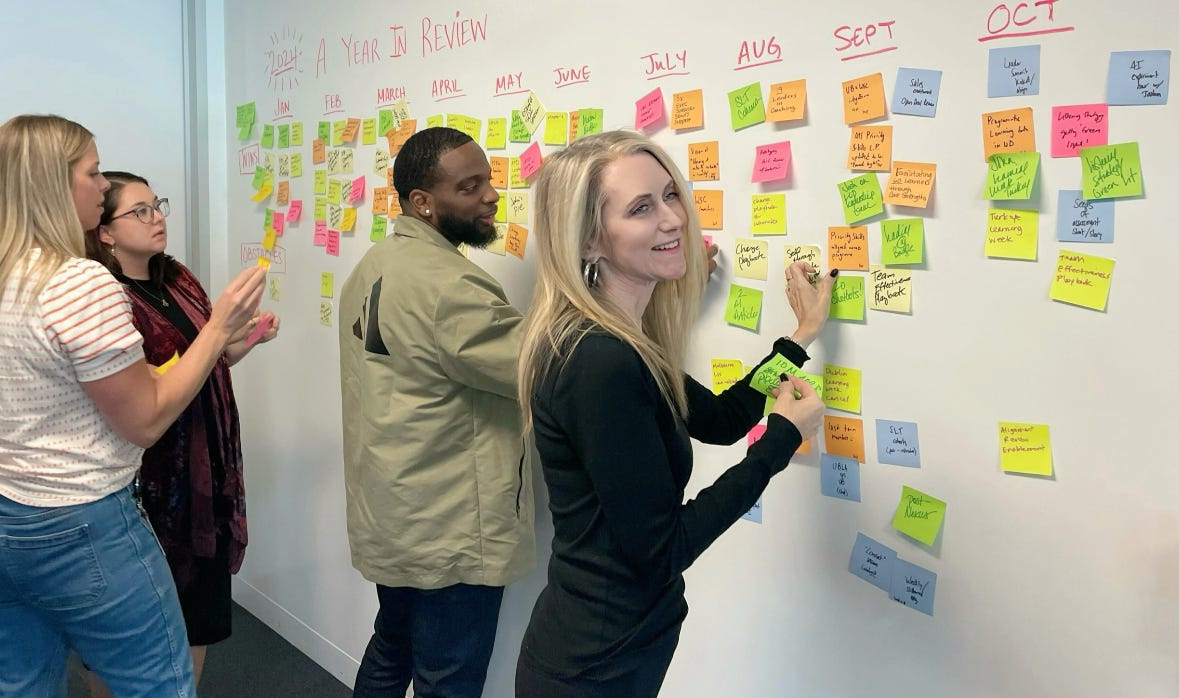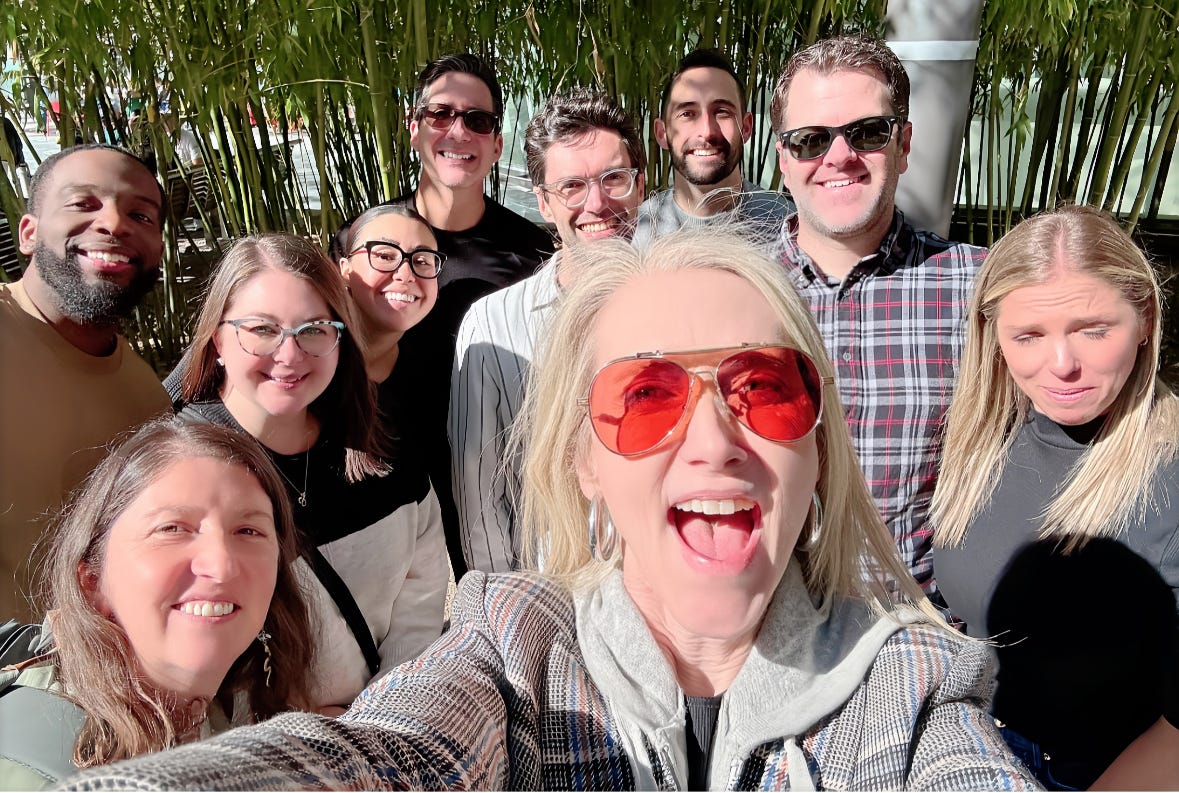In today's relentless world of work, it's easy to get swept up in the current of constant activity. But as recent global events have reminded us, pausing for reflection is not just beneficial; it's essential.
Years ago, while at Twitter, I observed a culture of "crazy busy" that prompted me to examine the relationship between packed calendars and leadership effectiveness. As a leader, I have learned that "busy" doesn't always equate to "productive." Back-to-back meetings and a jam-packed calendar can signal a lack of control and strategic focus. This lesson, learned through direct feedback from colleagues and team members, fundamentally changed my approach to leadership and how I manage my days.
Reflection in Action: A Team Exercise
Last week, our team gathered for an in-person onsite. We revisited an exercise from the previous year, taking time to individually and collectively assess our wins, obstacles, and key learnings. Here's how we structured the activity:
Individual Reflection:
Wins: What accomplishments are you most proud of this year?
Obstacles: What challenges did you face? What barriers need to be removed for future success?
Group Activity:
We added our wins and obstacles to a timeline on a whiteboard, clustering similar themes to identify patterns and collective experiences.
Group Discussion:
What themes emerged? What impact did we create as a team?
What obstacles hindered our progress?
What key insights will we carry forward?
This process sparked valuable conversations about clarity, alignment, and regularly revisiting our priorities. It reinforced our commitment to practices like weekly priority check-ins and Friday accomplishment sharing on Slack.
Walk and Talks
Beyond structured reflection, we integrated informal learning moments throughout our time together. Between sessions, team members engaged in walking one-on-one conversations as we walked to Salesforce Park for lunch, combining professional development with physical movement. These informal touchpoints proved especially valuable as we processed recent global events, providing a safe space for team members to share perspectives and concerns about developments that impact our professional and personal lives.
This structured and informal reflection blend exemplifies how leaders can create multiple channels for authentic dialogue and support, particularly during uncertainty or change.
The Neuroscience of Reflection
We ended our day with a powerful neuroscience-based practice: intentional appreciation. According to UC Berkeley's Greater Good Science Center, appreciation & gratitude don't just make us feel better—they fundamentally change how our brains process experiences and connect with others. Their comprehensive review reveals that regular gratitude practices strengthen neural networks associated with positive social emotions, enhance mental well-being, and improve relationships. I first encountered structured appreciation and gratitude through my experience at the Hoffman Institute (more on that soon). I now have an active “Appreciation & Gratitude” (AG) practice that I do at the end of every day. Doing this exercise with my team also reinforced its value as a leadership tool. When teams regularly practice appreciation, they share meaningful sentiments and actively rewire their brains for improved collaboration and connection.
The Courage to Pause: A Strategic Imperative
In today's workplace, the true differentiator isn't speed—it's clarity. At Udemy, one of our core behaviors is to "adapt and iterate based on what we learned." Meaningful adaptation requires clarity and something increasingly rare in organizational cultures today: the courage to pause.
Creating space for reflection isn't a luxury—it's a strategic imperative. It's the difference between being busy and being effective, between managing change and leading through it. The leaders who will thrive in tomorrow's workplace aren't those who move the fastest or have the most meetings on their calendars. They are the leaders who make time to move forward more meaningfully through the pause.
We're not just developing better leaders when we create intentional spaces for reflection—whether through structured exercises, walking conversations, or daily gratitude and appreciation practices. We're also building more resilient teams, adaptive organizations, and, ultimately, more sustainable success.
and speaking of appreciation…
I appreciate and am grateful to Jeff Scardina, Lauren Hauser, and John O’Neill for designing, facilitating, and dancing with all the changes that came with this team onsite.








🤍 this one.
Such a great recap!